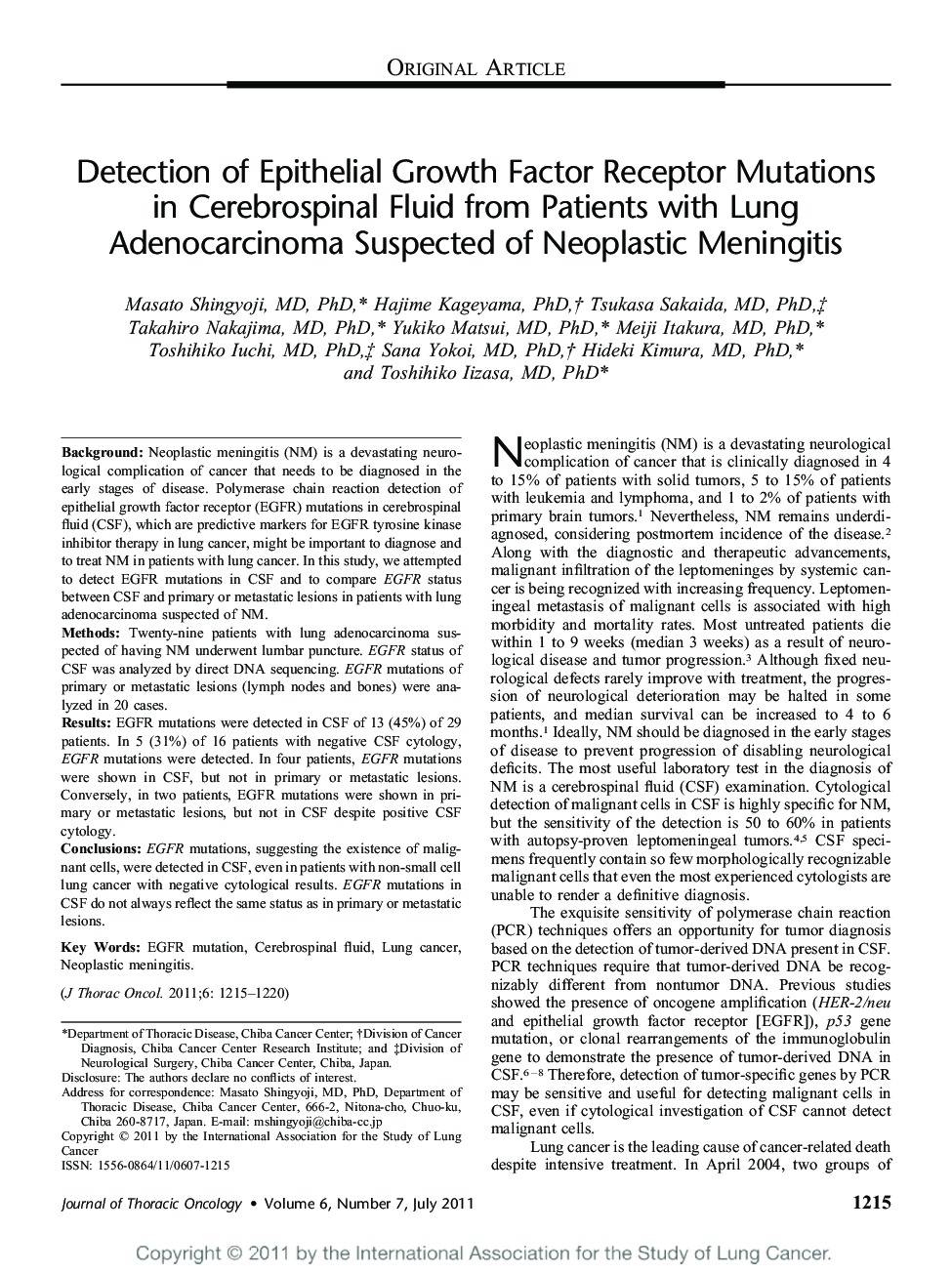| Article ID | Journal | Published Year | Pages | File Type |
|---|---|---|---|---|
| 3991144 | Journal of Thoracic Oncology | 2011 | 6 Pages |
BackgroundNeoplastic meningitis (NM) is a devastating neurological complication of cancer that needs to be diagnosed in the early stages of disease. Polymerase chain reaction detection of epithelial growth factor receptor (EGFR) mutations in cerebrospinal fluid (CSF), which are predictive markers for EGFR tyrosine kinase inhibitor therapy in lung cancer, might be important to diagnose and to treat NM in patients with lung cancer. In this study, we attempted to detect EGFR mutations in CSF and to compare EGFR status between CSF and primary or metastatic lesions in patients with lung adenocarcinoma suspected of NM.MethodsTwenty-nine patients with lung adenocarcinoma suspected of having NM underwent lumbar puncture. EGFR status of CSF was analyzed by direct DNA sequencing. EGFR mutations of primary or metastatic lesions (lymph nodes and bones) were analyzed in 20 cases.ResultsEGFR mutations were detected in CSF of 13 (45%) of 29 patients. In 5 (31%) of 16 patients with negative CSF cytology, EGFR mutations were detected. In four patients, EGFR mutations were shown in CSF, but not in primary or metastatic lesions. Conversely, in two patients, EGFR mutations were shown in primary or metastatic lesions, but not in CSF despite positive CSF cytology.ConclusionsEGFR mutations, suggesting the existence of malignant cells, were detected in CSF, even in patients with non-small cell lung cancer with negative cytological results. EGFR mutations in CSF do not always reflect the same status as in primary or metastatic lesions.
